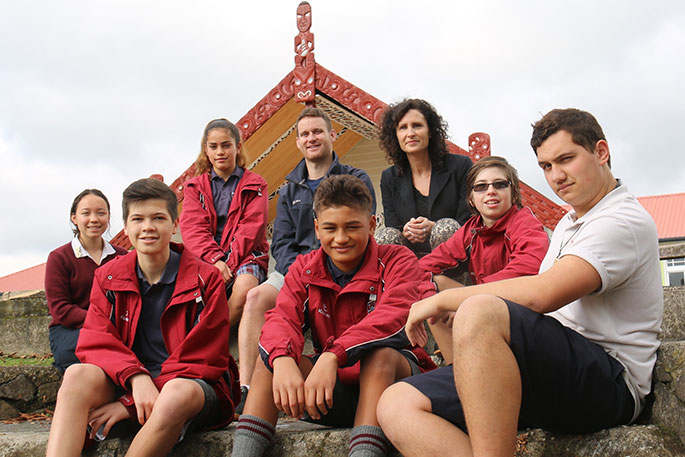The government's priority of better education outcomes for Maori is one at the forefront of teaching and learning at Te Puke High School. So much so that the school is spending more than $75,000 researching how best to go about it.
The school successfully applied for and was granted $76,000 from the Teacher-Led Innovation Fund to look at maximising success for Maori learners using both culturally responsive and 21st century teaching practices.
Teachers at the school were involved in the Ministry of Education's Te Kotahitanga project from 2007-2012 which involved learning about culturally responsive teaching practice. It resulted in an increase in the achievement of Maori students, including a lift in NCEA results, but not to the same level as non-Maori students.
The school has also found that younger Maori students in Years 9 and 10 are even further behind their peers in literacy and numeracy.
Deputy principal Polly Thin-Rabb and leader of learning PE and health, Shea McEvoy, are leading the project team and are excited about the professional learning ahead.
'These are things we've been working on for the past few years and now we have the opportunity to sit down and put it all together,” says Polly.
Participants in the research include teachers, Maori students and their whanau, who have been video interviewed on the school marae to kick start the project and will be interviewed again at the end of 2018 about the changes they have experienced in the classroom.
Working with experts from the University of Waikato, the project will involve all staff looking at culturally responsive and 21st century learning practices together.
'The first is about how we teach and learn, and the second is about what we teach and learn,” says Shea.
Polly says 21st century learning is not just about using digital tools.
'Digital tools are just tools. They shouldn't be used as the be all and end all for learning. These are the sort of things we have to help people work through.
'Twenty-first century learning is more about communication, collaboration, critical thinking and creativity – all things that employers say they need in order for our economy to move forward. We need to prepare kids for jobs that don't exist yet.
'And that's challenging when you come from a traditional approach, as we all have,” says Polly. 'It's all about mind shift and challenging our own assumptions and beliefs.”
The school has already made some changes, reshaping its junior curriculum to an integrated curriculum where, rather than English, mathematics, science, social studies and PE/health taught as separate subjects, they are taught together as ‘themes' with up to six teachers in the classroom at any time.
'We're able to engage kids in a completely different way. The idea is we start engaging them through their passions and it is less about content and more about developing core skills in literacies,” says Shea.
The school is also looking at whether it is overly focussed on assessment in Years 9 and 10.
Traditional schools are very assessment-driven which can be 'an exercise in regurgitation,” says Shea.
'And regurgitation doesn't make you a genius, it makes you a parrot. We want to give all kids from all cultures time and space to engage with their learning and their passions.”
Polly says by developing teachers understanding of culturally responsive and 21st century teaching practices they believe they will see Maori learners achieving equitably to non-Maori students.
'That will happen through professional learning in a collaborative environment rather than on our own. We are teaching together and now we will be learning together to create change together.”
The results of the research will be shared with other local schools – Te Puke schools have recently formed an official Community of Learning ¬¬ – as well as schools throughout New Zealand.

